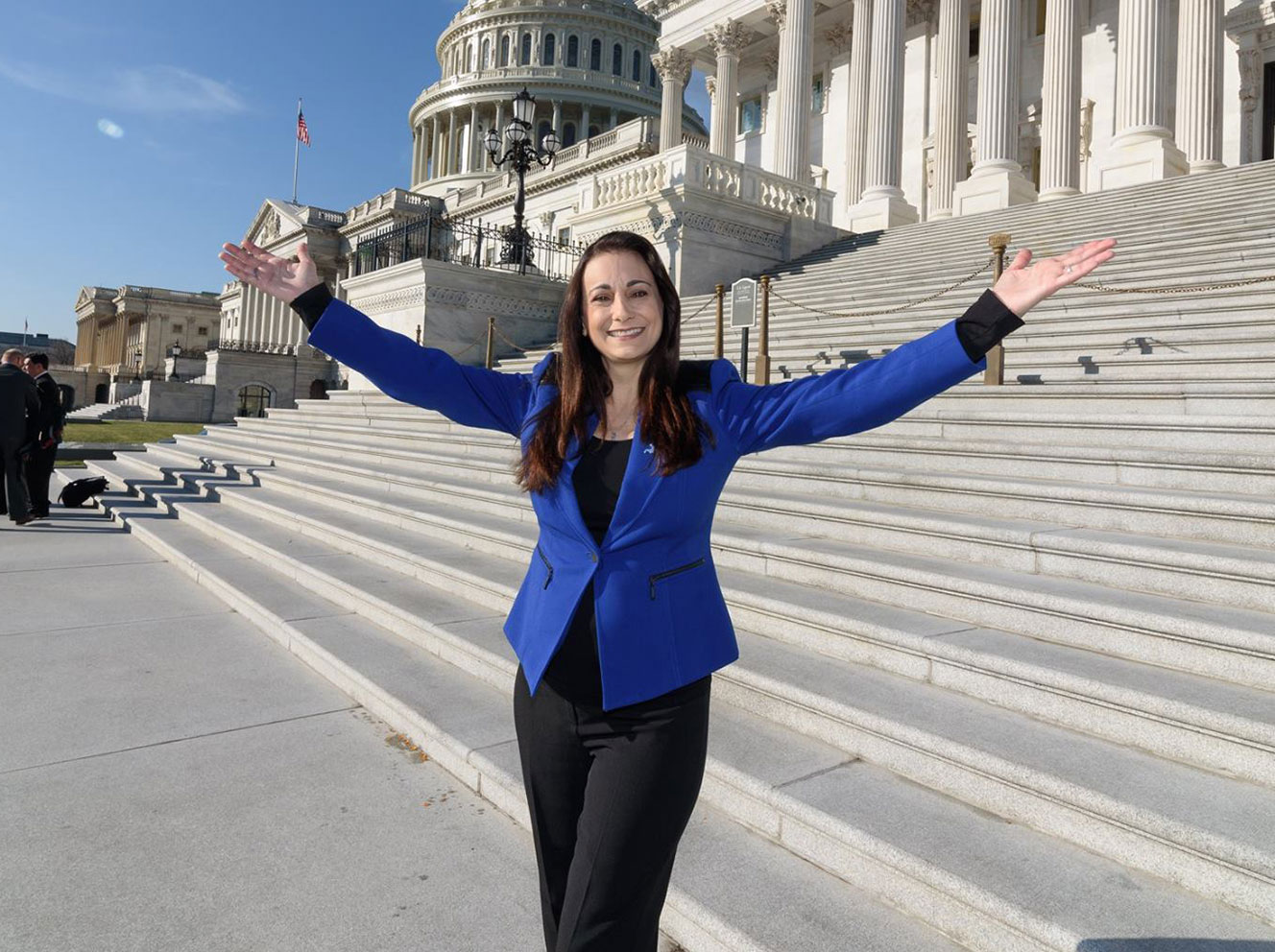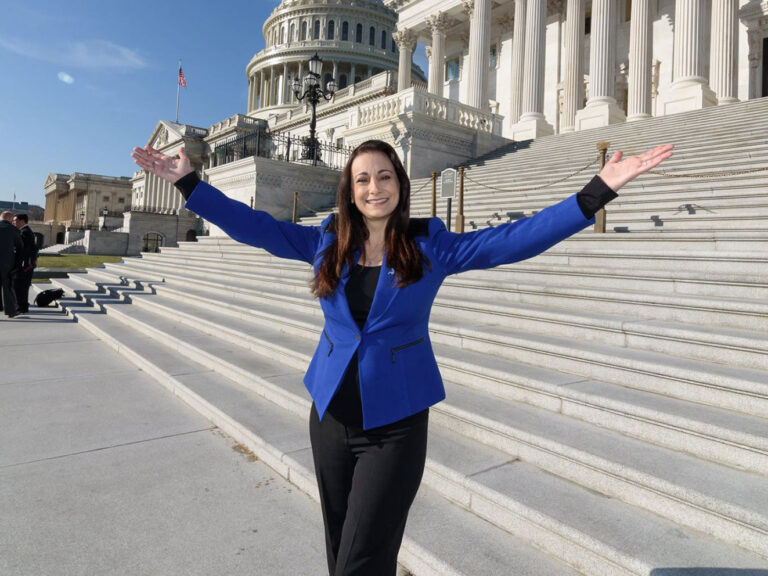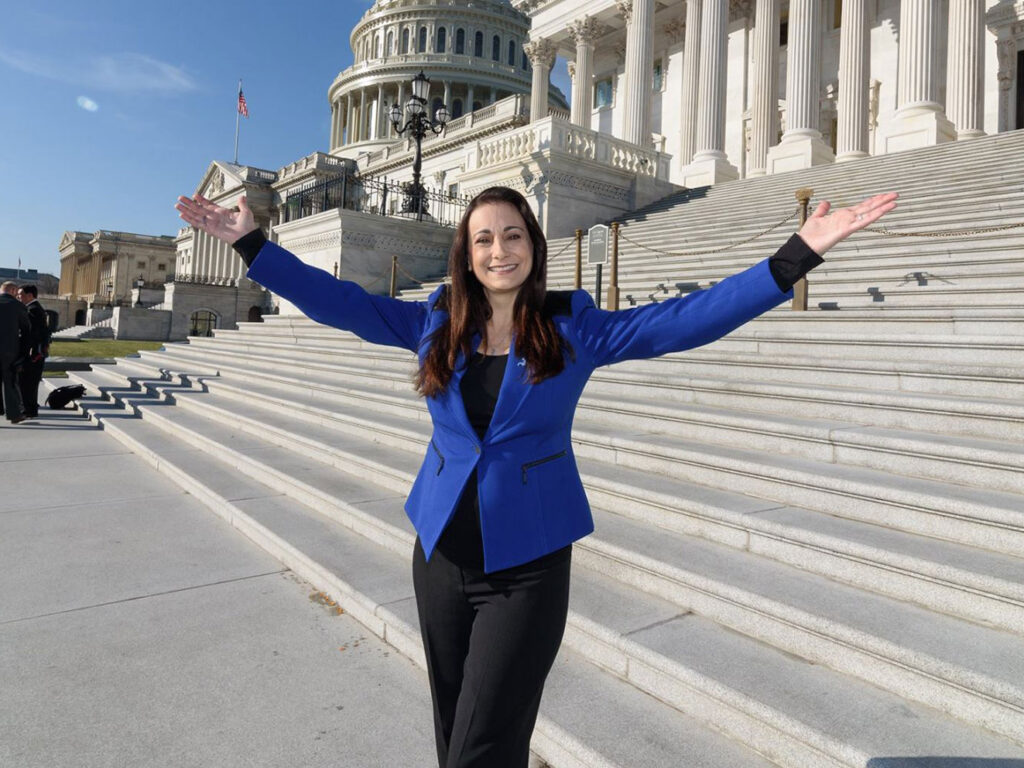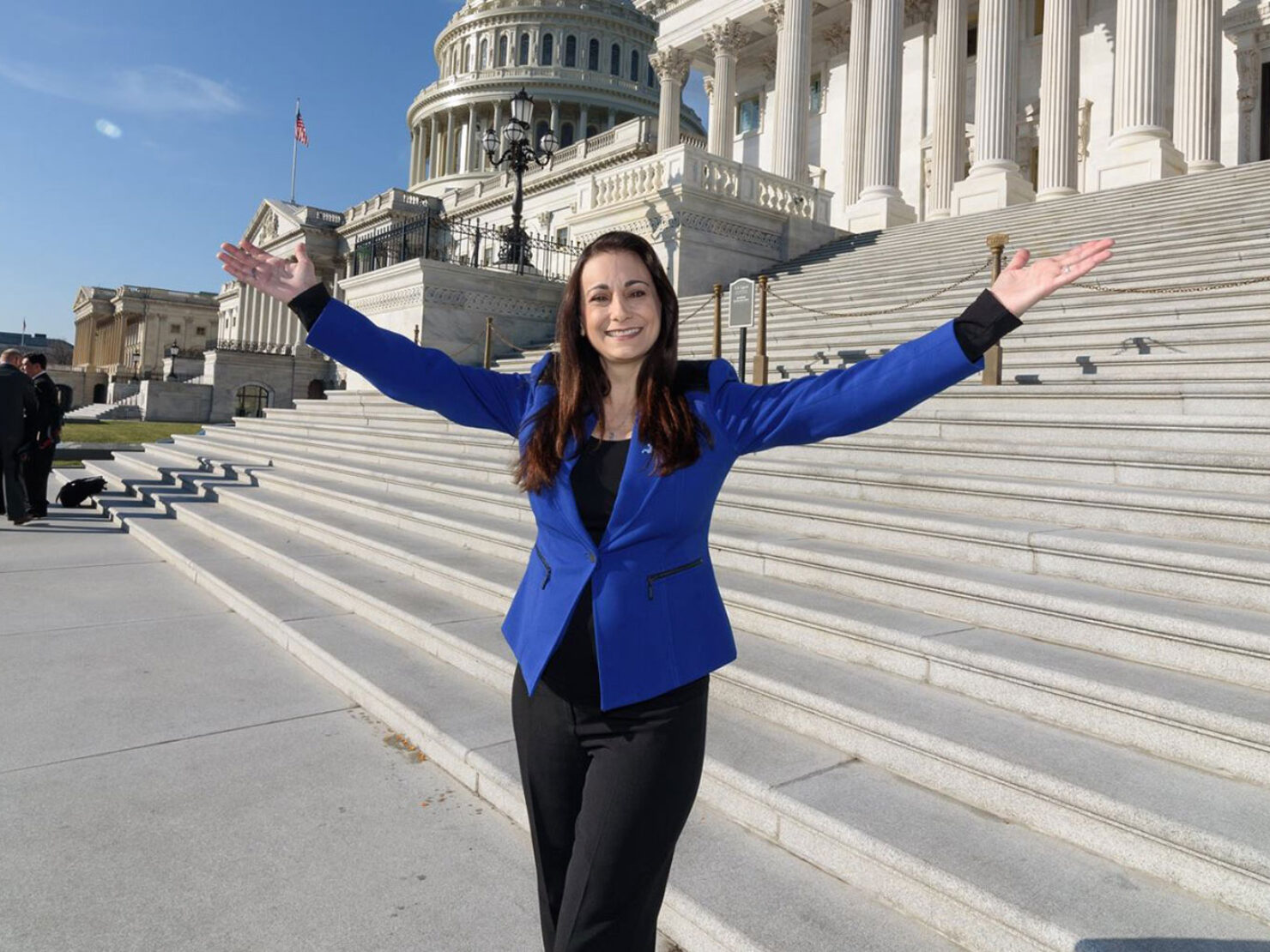Malignant ascites — when fluid in the abdomen contains cancer cells — represents one of the most serious, devastating complications of stomach cancer. The condition is often a sign of terminal disease, and only about 10% of patients survive longer than six months.
Debbie Zelman, the founder and first president of Debbie’s Dream Foundation (DDF): Curing Stomach Cancer, experienced malignant ascites in her final days with stage IV stomach cancer. Debbie passed away in 2017, but her vision continues to drive the Foundation’s mission. Diagnosed in April 2008, she established the Florida-based foundation in 2009 to: fund research into innovative, progressive and cutting-edge treatments for stomach cancer; raise awareness about the disease; and support stomach cancer patients, as well as their families and caregivers. So, when leadership from Debbie’s Dream Foundation discovered that medical oncologist, Sam Klempner, MD, and principal researcher, Alexandra-Chloe Villani, PhD, at Massachusetts General Hospital, were researching how to overcome immune resistance in ascites, they knew they had to act.
As part of its commitment to provide hope to gastric cancer patients, Debbie’s Dream Foundation has provided a $250,000 research grant to Mass General to support Drs. Klempner and Villani’s work to improve treatment outcomes for patients facing this complication. The team is studying how the ascites fluid interferes with the body’s immune system, making treatments like immunotherapy less effective. By understanding the mechanisms that allow cancer cells to resist treatment, they aim to identify new therapies to better target and overcome these barriers.

“This research goes to the heart of the mission of DDF,” says Debbie’s Dream Foundation Chief Executive Officer Andrea P. Eidelman. “We know how painful and hopeless malignant ascites can feel, and we understand just how urgent the need is to improve outcomes for patients with peritoneal disease. Supporting this project reflects our mission to invest in innovative science that can be rapidly translated into clinical impact.”
“This type of support from Debbie’s Dream enables us to do work that’s slightly more high risk, high reward. There’s so little known about what could be a potential target, and this funding allows us to be bolder in asking unbiased questions and going after nontraditional leads. We’re opening paths we didn’t even know were options before.”
Unlocking New Knowledge
Current approaches to managing malignant ascites focus primarily on relieving discomfort, where doctors remove the built-up fluid from the abdomen. But by working with Mass General oncologist Steven Blum, MD, Drs. Klempner and Villani found that extracting the fluid offered more than pain relief — the substance held information that could help them unlock new knowledge about tumor cells and immune response.
Since that discovery several years ago, the Mass General team has collected fluid from patients, then analyzed the makeup to better understand how the tumor cells and immune cells interact. In the process, they uncovered a potential new cell type that may be driving the immune system’s shutdown, along with potential molecules that have therapeutic potential. With support from Debbie’s Dream Foundation, the team is now studying these potential mechanisms using patient-derived tumor spheres — three-dimensional cancer models grown from patient cells. This work could lay the foundation for future clinical trials and speed up the path to new treatments.
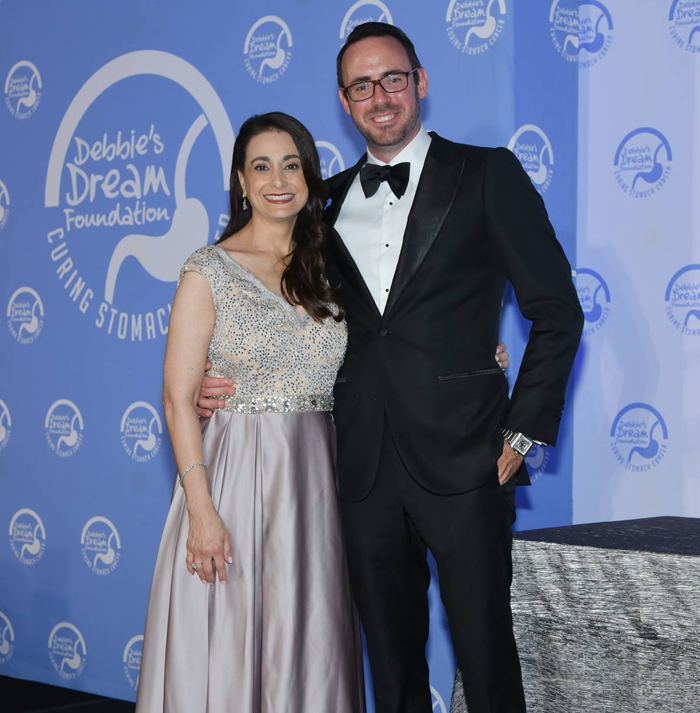
“This type of support from Debbie’s Dream enables us to do work that’s slightly more high risk, high reward,” Dr. Villani says. “There’s so little known about what could be a potential target, and this funding allows us to be bolder in asking unbiased questions and going after nontraditional leads. We’re opening paths we didn’t even know were options before.”
A Shared Mission
For the team at Debbie’s Dream Foundation, finding researchers that shared their goal of accelerating the development of new treatment strategies was crucial.
“I’ve worked with Debbie’s Dream Foundation for many years and had the privilege to meet Debbie during her long battle with stomach cancer,” Dr. Klempner says. “The hope is that our lab work will enable us to bring these therapies full circle and back to patients within the next one to two years. The past five years have seen a renaissance for gastric and esophageal cancers, and with a greater biologic understanding of the disease, we should be able to push new combinations ever further to improve outcomes for our patients.”
“Mass General’s leadership and scientific rigor stand out, especially in tackling the challenges of treatment-resistant gastric cancer,” says Eidelman. “The commitment of Drs. Klempner and Villani to transform scientific discovery into patient impact embodies the type of bold innovation we’re proud to support as we work toward fulfilling Debbie’s dream.”
To learn more and support gastric cancer research at Mass General, please contact us.
For more information about Debbie’s Dream Foundation, visit www.DebbiesDream.org.

